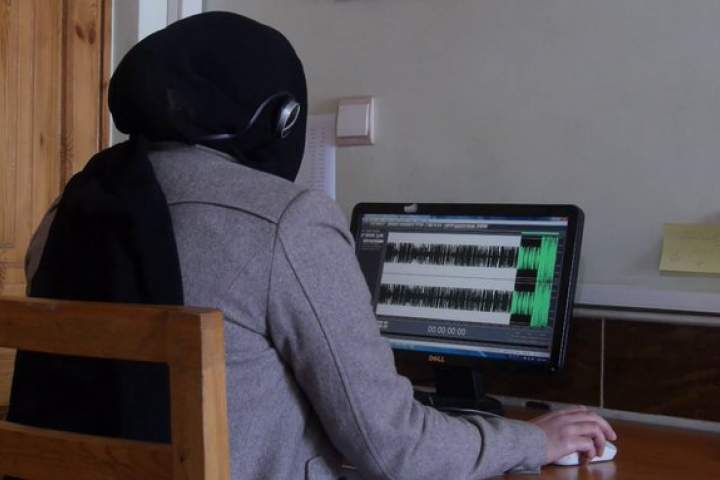Female journalists in Herat province are concerned about a lack of security and say threats against them are increasing.
Publish dateSaturday 18 January 2020 - 18:21
Story Code : 201047
They cite an “increase of extremism" as the main cause.
The concerns have been raised as Mawlawi Mujibur Rahman Ansari, head of Herat’s Gazargah mosque, refused to allow female journalists from covering a recent press conference.
Recently a female correspondent was injured by a knife by attack from an unknown assailant in Herat province.
Hasina Azimi, a female correspondent in Herat province, said the main difficulty for her in her work is the lack of security.
“These concerns exist for all women who are working outside the home. When some people say that women should stay in the home, it means that every woman is not allowed to go out, and such statements by extremists can increase reactions,” added Azimi.
Sanam Nikzad is another female correspondent who has been threatened while working for the media.
“I was coming home from university… two men came and attempted to hit me. They hit me on my hands, and I shouted and they ran off,” said Nikzad.
“It is correct that our women and civil society activists are threatened, and the pressure has increased to new levels, and I am sure that we should raise our voice and should demand help from the government,” said Alaha, a female news photographer.
Meanwhile, the Afghan Journalist Safety Committee (AJSC) said that they support journalists, especially female journalists.
“As the AJSC is a supporter of journalists and media, the committee will try to provide better protection and a better environment for journalists, especially female journalists in their area of work,” said Atafa Ghafoori, member of the AJSC.
On the other hand, Mohammad Dawood Hashimi, deputy governor of Herat, said that they will share all journalists lists with the National Directorate of Security (NDS) to help and provide them security.
“We will share the list with the security forces… to help them in their work area and also in the society where they are living,” added Hashime.
The concerns have been raised as Mawlawi Mujibur Rahman Ansari, head of Herat’s Gazargah mosque, refused to allow female journalists from covering a recent press conference.
Recently a female correspondent was injured by a knife by attack from an unknown assailant in Herat province.
Hasina Azimi, a female correspondent in Herat province, said the main difficulty for her in her work is the lack of security.
“These concerns exist for all women who are working outside the home. When some people say that women should stay in the home, it means that every woman is not allowed to go out, and such statements by extremists can increase reactions,” added Azimi.
Sanam Nikzad is another female correspondent who has been threatened while working for the media.
“I was coming home from university… two men came and attempted to hit me. They hit me on my hands, and I shouted and they ran off,” said Nikzad.
“It is correct that our women and civil society activists are threatened, and the pressure has increased to new levels, and I am sure that we should raise our voice and should demand help from the government,” said Alaha, a female news photographer.
Meanwhile, the Afghan Journalist Safety Committee (AJSC) said that they support journalists, especially female journalists.
“As the AJSC is a supporter of journalists and media, the committee will try to provide better protection and a better environment for journalists, especially female journalists in their area of work,” said Atafa Ghafoori, member of the AJSC.
On the other hand, Mohammad Dawood Hashimi, deputy governor of Herat, said that they will share all journalists lists with the National Directorate of Security (NDS) to help and provide them security.
“We will share the list with the security forces… to help them in their work area and also in the society where they are living,” added Hashime.
Source : Afghan Voice Agency(AVA)
avapress.net/vdcdof0x5yt0zz6.em2y.html
Tags
Top hits







